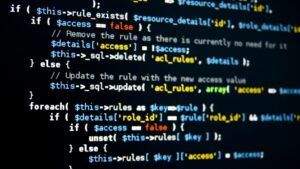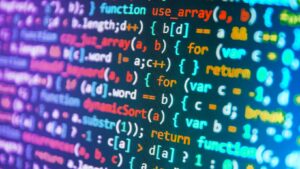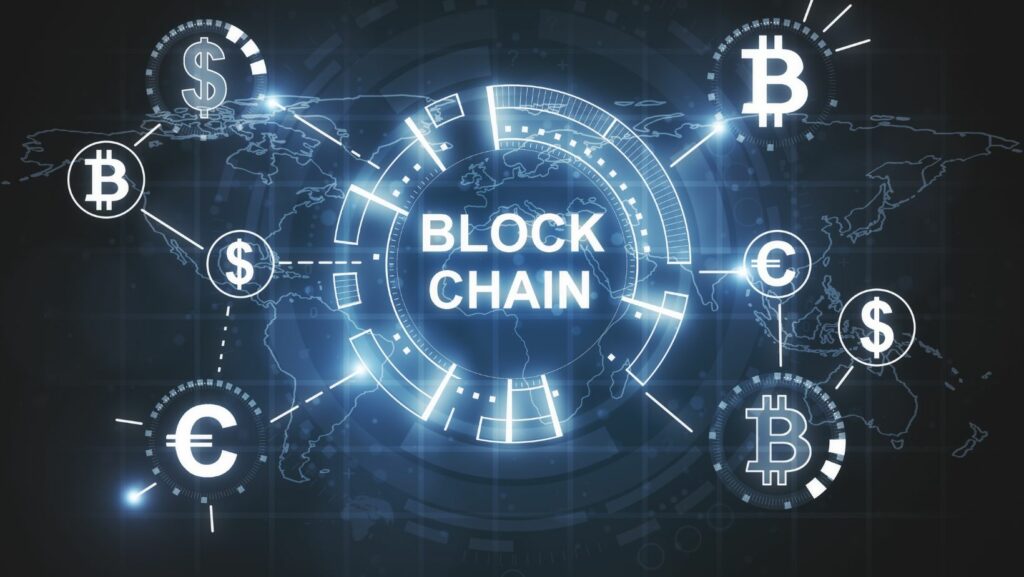In today’s rapidly evolving digital landscape, blockchain technology emerges as a cornerstone of innovation across various industries. Companies seeking to leverage this technology face a significant hurdle: finding skilled blockchain developers. These professionals are pivotal in transforming ideas into real-world blockchain solutions, enhancing transparency, security, and efficiency.
Hiring the right blockchain developer is more than just filling a position; it’s about securing a strategic advantage in a highly competitive market. Whether it’s for developing decentralized applications, implementing smart contracts, or enhancing existing digital systems, the expertise of a blockchain developer can be the linchpin for success.
As businesses delve into the realm of blockchain, understanding the nuances of recruiting the right talent becomes crucial. This article aims to guide you through the intricacies of hiring a blockchain developer, ensuring you make an informed decision that aligns with your business objectives and technological needs.
Hire Blockchain Developers
Skills and Expertise Required
 Hiring a competent blockchain developer requires a robust understanding of various technical competencies essential for developing secure and efficient blockchain solutions. Developers must possess a deep knowledge of data structures and cryptography, which are fundamental to constructing the underlying framework of blockchain technology. Strong programming skills in languages such as Solidity, JavaScript, and Python are crucial for creating smart contracts and decentralized applications (DApps). Experience with cloud infrastructure and services, including AWS and Microsoft Azure, aids developers in implementing scalable blockchain applications. Additionally, familiarity with front-end development technologies like HTML, CSS, and ReactJS enhances a developer’s ability to build comprehensive user interfaces for blockchain applications.
Hiring a competent blockchain developer requires a robust understanding of various technical competencies essential for developing secure and efficient blockchain solutions. Developers must possess a deep knowledge of data structures and cryptography, which are fundamental to constructing the underlying framework of blockchain technology. Strong programming skills in languages such as Solidity, JavaScript, and Python are crucial for creating smart contracts and decentralized applications (DApps). Experience with cloud infrastructure and services, including AWS and Microsoft Azure, aids developers in implementing scalable blockchain applications. Additionally, familiarity with front-end development technologies like HTML, CSS, and ReactJS enhances a developer’s ability to build comprehensive user interfaces for blockchain applications.
Types of Blockchain Platforms
When looking to hire a blockchain developer, understanding the diversity of blockchain platforms available is vital. Ethereum, known for its pioneering smart contract functionality, is one of the most popular platforms and is preferred for a range of applications from finance to logistics. Developers also work with platforms like Hyperledger Fabric, favored by enterprises for its modularity and privacy features, or Ripple, which is optimized for fast, cross-border financial transactions. Other notable platforms include EOS, known for its high transaction throughput, and Cardano, which offers a strong focus on security and sustainability. Each platform requires specific skills and knowledge, making it imperative to choose developers with expertise in the relevant blockchain ecosystem your project demands.
Finding the Right Blockchain Developer
What to Look for in a Candidate
 Identifying the ideal blockchain developer requires a focus on several key competencies and qualities. Technical skills are paramount, with a necessity for deep understanding in data structures, cryptography, smart contract development, and consensus algorithms. Expertise in programming languages such as Solidity, JavaScript, Python, or Go is essential, given the diverse needs of blockchain projects.
Identifying the ideal blockchain developer requires a focus on several key competencies and qualities. Technical skills are paramount, with a necessity for deep understanding in data structures, cryptography, smart contract development, and consensus algorithms. Expertise in programming languages such as Solidity, JavaScript, Python, or Go is essential, given the diverse needs of blockchain projects.
In addition to technical skills, look for candidates who demonstrate strong problem-solving abilities, innovative thinking, and a capacity for continuous learning—blockchain technology evolves rapidly, and staying current with the latest advancements like Ethereum 2.0 or DeFi protocols is crucial. One must also evaluate their experience with different blockchain platforms such as Ethereum, Hyperledger, or Corda, since each serves distinct purposes depending on the business use case.
Furthermore, a potential hire should possess effective communication skills, as they’ll need to explain complex blockchain concepts to stakeholders and collaborate with teams that may have limited technical understanding.
Ideal Hiring Practices
 When setting out to hire a blockchain developer, consider these best practices to secure top talent. First, clearly define the role and expectations. Specify the project’s technical requirements, the developer’s responsibilities, and the project timelines. This clarity helps in attracting developers who are well-suited for the job and reduces the likelihood of mismatches.
When setting out to hire a blockchain developer, consider these best practices to secure top talent. First, clearly define the role and expectations. Specify the project’s technical requirements, the developer’s responsibilities, and the project timelines. This clarity helps in attracting developers who are well-suited for the job and reduces the likelihood of mismatches.
Networking plays a crucial role in finding qualified candidates. Engage with blockchain communities online and offline, attend industry conferences, and connect with educational institutions that offer specialized blockchain courses.
Utilizing specialized recruitment agencies or platforms that focus on tech and blockchain talent can also streamline the hiring process. These agencies often have pre-vetted candidates, saving time and resources in the initial stages of recruitment.
Finally, consider implementing practical assessments during the interview process. Challenges such as coding tests or problem-solving sessions related to blockchain scenarios provide insight into the candidates’ practical skills and their approach to real-world problems.
By adhering to these practices, companies can enhance their chances of finding a blockchain developer who not only meets the technical requirements but also fits well within the team and aligns with the company’s long-term goals.



